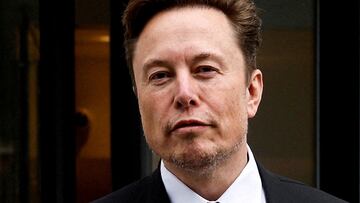What did Elon Musk say about George Soros?
Elon Musk has voiced antisemitic attacks against billionaire and Holocaust survivor George Soros. Why did he launch these attacks?


Earlier this week, fake news was spread that billionaire financier George Soros had died after suffering a heart attack. Soros took to Twitter to confirm that his health was just fine at the ripe age of ninety-two.
Rumors that I had a heart attack are completely false. I am alive and healthy.
— George Soros (@georgesoros) May 15, 2023
Elon Musk, Twitter’s CEO, contributed to the discourse on his social media platform this week, continuing to spread antisemitic misinformation about the power Soros has on the global economy. Many on both the left and right of the political spectrum may take issue with the way that Soros and other extremely wealthy individuals throw their economic power around in the political arena. However, Musk’s comments are based on a caricature of an evil billionaire who uses his power to bring about the end of humanity.
The debate on Twitter got started earlier this week with Musk saying that Soros reminded him of the supervillain Magento from the Marvel Universe.
Soros reminds me of Magneto
— Elon Musk (@elonmusk) May 16, 2023
Independent journalist Brian Krassenstien responded to the CEO’s tweet, informing him that “Magneto’s experiences during the Holocaust as a survivor shaped his perspective as well as his depth and empathy.”
Fun fact: Magneto's experiences during the Holocaust as a survivor shaped his perspective as well as his depth and empathy. Soro, also a Holocaust survivor, get's attacked nonstop for his good intentions which some Americans think are bad merely because they disagree with this…
— Brian Krassenstein (@krassenstein) May 16, 2023
Krassenstien also argued that many attack Soros as an evil mastermind because they disagree with his political and social vision. Musk responded without detailing specific policies that Soros has endorsed that he objects to and instead said that his intentions are bad and that he “wants to erode the very fabric of civilization.”
You assume they are good intentions. They are not. He wants to erode the very fabric of civilization. Soros hates humanity.
— Elon Musk (@elonmusk) May 16, 2023
Why did Musk choose to lash out at George Soros this week?
We cannot put ourselves in the mind of Elon Musk.
The New Republic did report that the saga on Twitter began after the Soros Fund Management sold more than 135,000 Tesla stocks earlier this week. The Soros Fund Management had bought up the stocks of the electric car company throughout 2022 when the price was low, and with the rapid rise in value seen this year, decided to sell off their traunch. This led to a subsequent fall in the value of Tesla and, subsequently, the attacks from Elon Musk. Musk has spoken openly about how he feels his companies will be able to save humanity, and perhaps the selling of the stocks by the Soros Fund Management was taken as a personal attack on his mission.
Related stories
Later, a Twitter user named David Sachs attacked Soros for donations in District Attoneyr races, claiming that “His DAs would then change the law through the abuse of prosecutorial discretion.” Examples of this claim were not provided. Musk responded to Sach’s tweet, saying that Soros had “identified a massive arbitrage opportunity in district attorney elections, where a relatively small amount of money has outsized influence.”
Perfectly said. Among other things, Soros astutely identified a massive arbitrage opportunity in district attorney elections, where a relatively small amount of money has outsized influence.
— Elon Musk (@elonmusk) May 17, 2023
Soros’s instructions to his pet prosecutors were (essentially) to minimize prosecuting…
Rather than doing as Sachs argued and changing laws, Musk believes that Soros aims to use his “pet prosecutors” to limit prosecutions against violent criminals. The validity of these claims is highly suspect and attributes a motivation to Soros’ acts that are difficult to prove. However, what is additionally puzzling is that it is difficult to understand what Musk believes should be done if these accusations are true. Should no millionaires and billionaires be able to donate to local elections? Should donations from super PACs that can funnel unlimited sums of cash to candidates be abolished? Or does Musk think that Soros should have his ability to donate to political campaigns infringed?